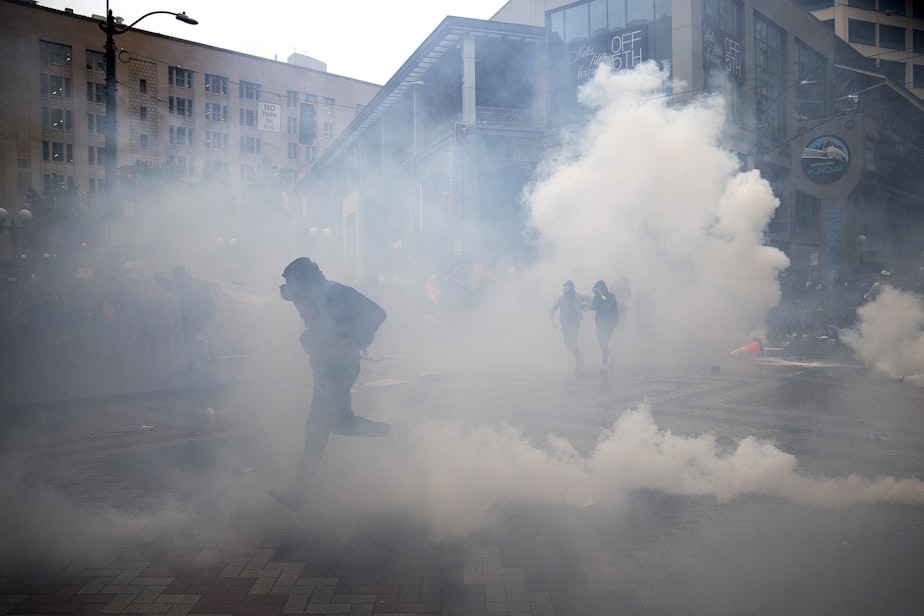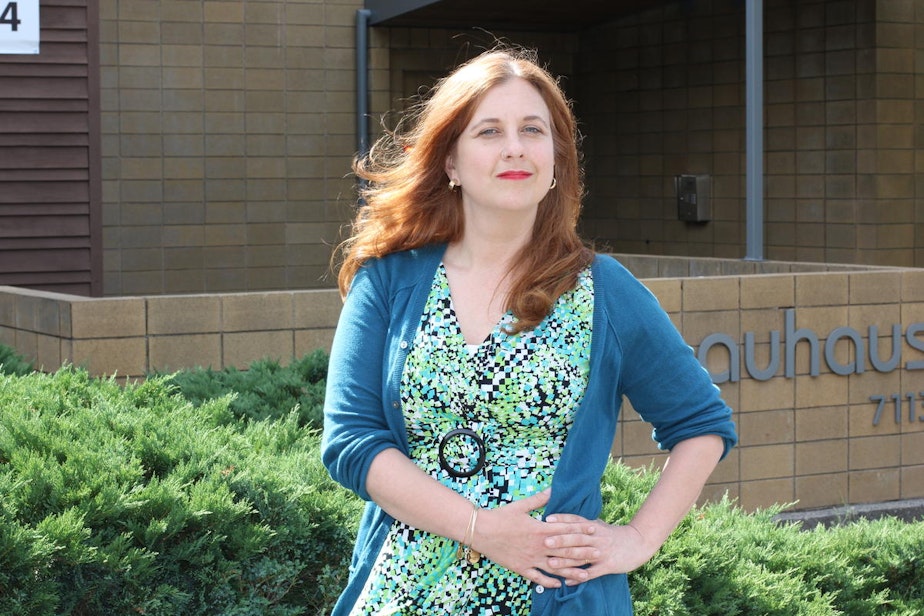Mayor Durkan says Seattle Council bill restricting crowd-control tactics 'doesn't change anything'

Seattle Mayor Jenny Durkan says she wants to improve policing in the city, but she says City Council members recently overstepped some legal boundaries to do so.
In August, the Council unanimously approved a proposal to limit certain police tactics that were widely criticized during last summer's social justice demonstrations.
The bill is intended to replace a similar measure Council members approved in June 2020 that was blocked by a federal judge.
Federal District Court Judge James Robart has been overseeing a consent decree agreement with the Justice Department since 2012, when the city agreed to work with federal officials to reform the Seattle Police Department.
Sponsors say the measure approved last month is meant to restrict police officers' use of crowd-control weapons.
It requires the Seattle Police Department to write new crowd-control policies, to include restrictions on the use of so-called "less-than-lethal" weapons, like blast balls, tear gas, and pepper spray.
Sponsored
The Council tried to ban the use of those and other weapons outright in 2020; Robart stopped it from taking effect after the DOJ suggested limitations on less-than-lethal weapons might lead them to use even more extreme force.
"It's important for the public to understand what the clear rules are. It's important for officers to understand what the clear rules are," Durkan told KUOW. "And Council passed something, claiming it made changes, when they know it doesn't make a single change."
The Council unanimously approved — and Durkan declined to sign — the measure in August. It's still contingent on federal court approval.
In a letter explaining why she would not sign the ordinance, Durkan says it is "misguided for a myriad of reasons."
"Council knows that significant parts of the bill will never go into effect for the reasons cited in this letter. Thus, the law unfairly sets community expectations that all provisions will be enacted when they will not. This will undermine public trust, create confusion, and could hasten more departures from SPD."
Sponsored

City Councilmember Lisa Herbold, who chairs the Council's Public Safety and Human Services Committee, disagrees.
In a statement after the bill was approved, Herbold said the legislation was crafted in compliance with the city's consent degree and in collaboration with federal reform partners as well as the Community Police Commission, the Office of the Inspector General and the Office of Police Accountability.
“We’ve spent the last year ensuring the development of policy regulating the use of less-lethal weapons is consistent with the obligations under the federal Consent Decree," Herbold says in her statement. "The legislation maintains an absolute ban on blast balls and other disorientation devices. However, the legislation allows, in narrow circumstances, use of tear gas and pepper spray during a violent public disturbance. As the Community Police Commission said, there is still work to be done. But this is a good start in ensuring we’re balancing protections for free speech at demonstrations with the ability of officers to respond to violent activities.”
Durkan isn't convinced. And she says she expects Federal District Court Judge James Robart to reject this measure as he did last year.
Sponsored
"The problem is the debate happened in such volatile times, and people got so wed to the bumper-sticker solutions," she said. "If Council wanted to actually enact a law to make those changes, it knew how to do it, it did it before, and it was struck down by the court."




